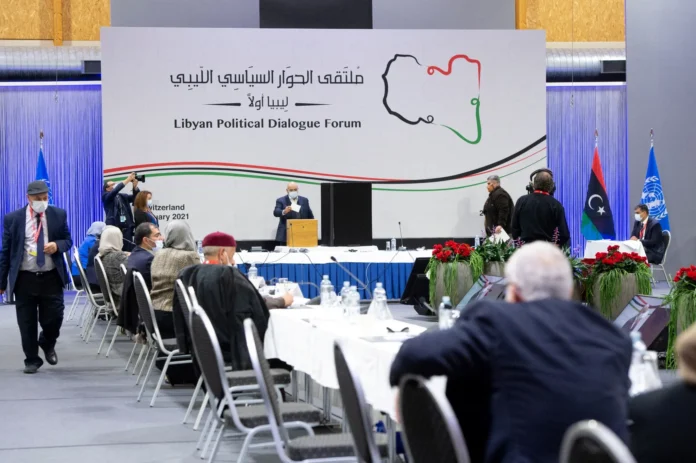Authors: Stephanie Turco Williams and Jeffrey Feltman
Affiliation: Former US deputy head of the United Nations Support Mission in Libya, United Nations Foundation
Organization/Publisher: Brookings Institution
Date/Place: February 17, 2021/USA
Type of Literature: Analysis
Word Count: 2258
Keywords: Libya, LPDF, 5+5, Dbeibeh Government
Brief:
The Libyan Political Dialogue Forum (LPDF) process is full of risks, weaknesses, and imperfections. Libyan stakeholders and the international community must act quickly to help Libyans drive external actors out of Libya. The back and forth between Haftar’s military attacks and the UN-recognized Government of National Accord’s (GNA) response has created a political opening. As a result of Haftar’s attacks on Tripoli, the UN established a political process to bring Libyans together in an International Conference hosted by Germany in January of 2020. However, Haftar’s use of sophisticated weapons and intelligence from his outside backers (Russia, Egypt and UAE) broke the political initiative and revived the war. As a result, the GNA reached out to the Turks for help. With the support of Turkey, the GNA was able to push the war from Tripoli, but neither Haftar nor the GNA could prevail militarily over the whole country. Due to that, a new initiative took place between the GNA and the Eastern part called 5+5 meeting between military personnel, 5 from each wing. With the UN’s supervision, the first LPDF meeting took place in Tunis in November 2020, where a roadmap for political resolution was drafted. This political resolution marked a consensus between local and external actors alike. This momentum must be sustained for Libyan stakeholders and the international community. The new prime minister should form a small, inclusive, technocratic government and address immediate tasks; the House of Representatives (based in Tobruk) must endorse the minister’s cabinet choices and government program; the LPDF must remain as a reference and a roadmap; both the current government and the international community must support the High National Elections Commission for the next presidential and parliamentary elections in December; foreign actors that are directly interfering in Libya must abide by the January 2020 Berlin conference conclusions, United Nations Security Council Resolution 2510, and the U.N. arms embargo in place since 2011 and renewed annually. The path ahead is challenging but Libyans can enter into a new era of stability if LPDF shoulders its responsibility.
By: Imad Atoui, CIGA Research Associate




